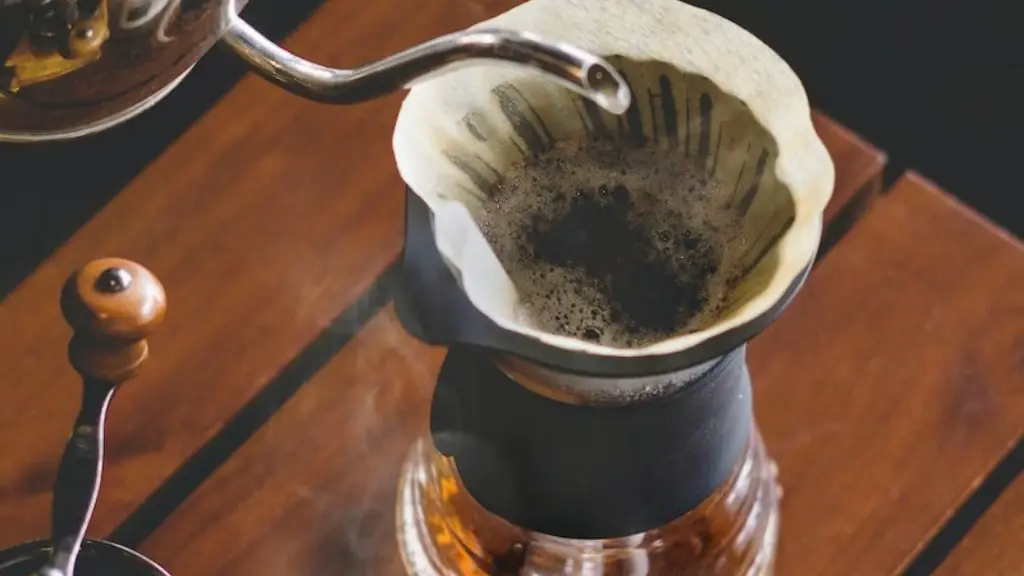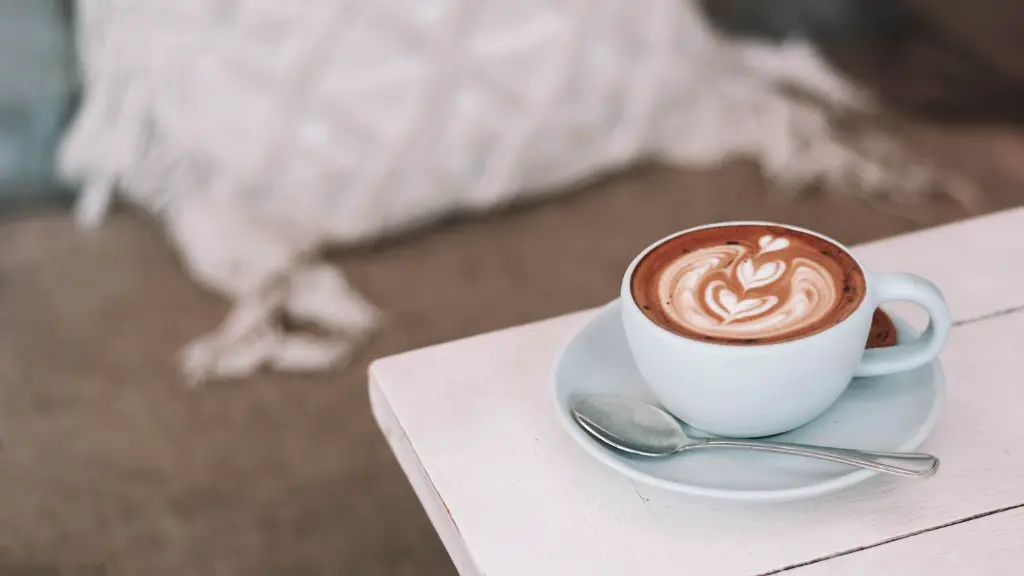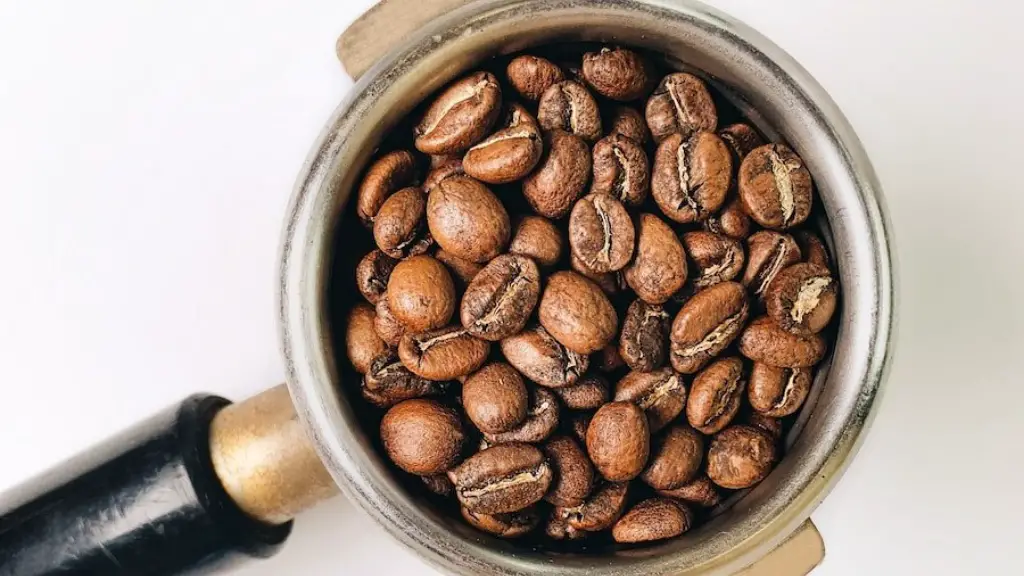Why Do I Poop When I Drink Coffee?
Most coffee-drinkers experience an urge to use the restroom shortly after drinking a cup of coffee. This phenomenon, known as “coffee pooping” or “caffeine pooping”, is surprisingly common. Research estimates that around 80% of us experience it at some point in our lives. So why does it happen?
Simply put, coffee pooping is caused by the stimulating effect that coffee has on the large intestine. When coffee enters the intestine, muscles in the walls of the intestine contract, which triggers the urge to pass bowel movements more quickly than usual. It can happen immediately after drinking coffee, or shortly after, within 15 minutes of the first sip.
However, it’s important to note that coffee pooping can have a number of different causes. An underlying digestive disorder, such as irritable bowel syndrome, can trigger coffee pooping for some people. It’s also possible that other factors, such as stress or anxiety, can contribute to the urge.
Experts advise that if you experience coffee pooping regularly and if it is causing discomfort or interfering with your daily life, it might be a good idea to see a doctor. There may be an underlying condition that needs to be addressed, or dietary changes you can make to reduce your chances of experiencing it.
Different Types of Coffee
Some types of coffee are more likely than others to cause coffee pooping. Espresso is known to be a powerful stimulant, and due to its high concentration of caffeine, is more likely to cause a bowel movement in a short amount of time. Similarly, caffeinated beverages other than coffee, such as energy drinks and tea, may also cause coffee pooping.
On the other hand, decaffeinated coffee is much less likely to cause a bowel movement. This is because decaffeinated coffee does not contain a large dose of caffeine, so the stimulating effect isn’t as strong. However, some people may still experience coffee pooping from decaffeinated coffee if they are particularly sensitive to it.
Dietary Changes
If you find yourself dealing with frequent episodes of coffee pooping, there are some dietary changes you can make that may help reduce the problem. For example, drinking more water throughout the day will help keep your bowels hydrated, which may help reduce the urge to defecate.
You can also try eating smaller meals more frequently throughout the day. This will keep your digestion moving at a regular pace and minimize the likelihood of coffee pooping. Additionally, try to reduce your intake of foods that are difficult to digest, such as high-fat and processed foods.
Medical Solutions
If these dietary changes are not enough to reduce your episodes of coffee pooping, you should seek medical help. A physician can rule out any underlying medical conditions, and advise you on any necessary lifestyle changes. They may also recommend medications, such as antidiarrheal drugs, that can help reduce the urge to use the bathroom.
Furthermore, if you believe that stress or anxiety might be triggering your episodes of coffee pooping, psychotherapy may be recommended. This can help reduce your stress levels and reduce the likelihood of experiencing the problem.
Prebiotics and Probiotics
Prebiotics and probiotics, or “good” bacteria, have been linked to improved digestion and decreased symptoms of irritable bowel syndrome. If taken on a regular basis, they may help reduce the frequency of coffee pooping. Probiotics can be found in certain yogurts and other fermented foods, while prebiotics can be found in fruits, vegetables, and whole grains.
Furthermore, probiotic supplements are widely available and can readily be purchased online or in health food stores. Taking these supplements on a regular basis may help to reduce episodes of coffee pooping.
Self-Care
Self-care is also important when it comes to coffee pooping. When under stress, it is important to take time for yourself to relax and wind down. Exercise is also known to reduce stress levels and can help to manage coffee pooping. It is also important to get plenty of rest, as exhaustion can worsen episodes of coffee pooping.
Furthermore, it is important to stay hydrated. Drinking plenty of water throughout the day may help to reduce the intensity of episodes of coffee pooping. It is also important to eat a balanced, nutritious diet containing plenty of fruits, vegetables, and whole grains.
Coffee Alternatives
If episodes of coffee pooping are becoming more frequent, it might be wise to reduce the amount of coffee that you are drinking. Substituting coffee for other drinks, such as herbal tea or decaffeinated green tea, may help to reduce episodes of coffee pooping.
You can also try adding cream or milk to your coffee, as these can help reduce the stimulating effect that coffee has on the large intestine. Additionally, try sprinkling some cinnamon or nutmeg onto your coffee- these spices are known to have calming effects and may reduce the urge to use the restroom.
Mindful Drinking
Finally, mindful drinking can help to reduce episodes of coffee pooping. Mindful drinking means drinking coffee on an empty stomach and paying close attention to how it feels in your body. Paying attention to how your body reacts to coffee can help you identify the signs of coffee pooping. If you take notice of those signs, you can take steps to reduce the chances of coffee pooping.
In conclusion, it is important to note that coffee pooping is a common phenomenon and can be caused by a number of different factors. If you are experiencing coffee pooping regularly, it is important to address the underlying cause. This may include making dietary changes, taking probiotic supplements, or reducing your intake of coffee. It is also important to practice mindful drinking and take time for self-care.




